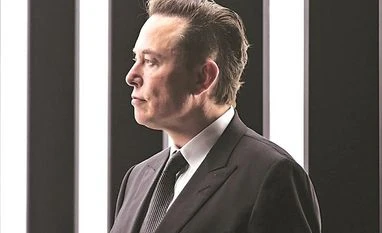The opinions poured in, 280 characters at a time, as to whether it was good or bad that Elon Musk had offered to buy Twitter for more than $40 billion and take it private.
A person’s politics typically dictated how they felt: Conservatives cheered it as victory for free speech. Liberals fretted that misinformation would spread rampantly if Musk followed through with his plan to dismantle how the social network monitors content.
But what no one seemed to be able to say with any certainty was what kind of political philosophy the enigmatic billionaire believes himself.
That’s because Musk, 50, who was born in South Africa and only became an American citizen in 2002, expresses views that don’t fit neatly into this country’s binary, left-right political framework.
He is frequently described as libertarian, though that label fails to capture how paradoxical and random his politics can be. He has no shortage of opinions on the most pertinent and divisive issues of the day, from Covid-19 lockdowns (“fascist,” he called them) to immigration restrictions (“Very much disagree,” he has said.)
There is not much consistency in the miscellany of his public statements or his profuse Twitter commentary — except that they often align with his business interests. And despite the intense partisan reaction to his unsolicited bid to buy Twitter, his opaque politics make it difficult to say whether the elation and fear about how he would run the company are justified. He has railed against federal subsidies but his companies have benefited from billions of dollars in tax breaks and other incentives from federal, state and local governments. He has strenuously opposed unionisation, criticising the Biden administration for proposing a tax credit for electric vehicles produced by union workers.
He is the co-founder of an electric car manufacturer, Tesla, who quit former President Donald J. Trump’s business councils after the administration pulled out of the Paris climate accord. But he recently ran afoul of environmentalists for calling for an immediate increase in domestic oil and gas production, though it would not be helpful to his own businesses in electric cars and solar energy.
He is an avowed enthusiast for the First Amendment. But he has tried to force a journalist to testify in a defamation lawsuit against him, and he has often had outsize reactions to criticism. Four years ago, he floated a plan to create a website to rate the credibility of reporters, calling it Pravda, in an odd nod to the Soviet Union’s propaganda publication. (Nothing much came of it). And a venture capitalist wrote at length about Musk cancelling his order for a new Tesla after the investor complained about a Tesla event.
Musk said he was a registered independent when he lived in California, the state he famously and loudly left for Texas because he said its business climate had grown too inhospitable. He has described himself as “politically moderate” but added, “Doesn’t mean I’m moderate about all issues.”
His concerns about the way Twitter now censors content echo those of conservative activists and politicians who have argued that social media companies are poor arbiters of truth and should not be engaged in policing speech. One person who has worked closely with Musk said that it is Musk’s firmly held belief that in a functioning democracy, it is anyone’s right to say “whatever stupid thing you want.” This person, who spoke anonymously to not violate Musk’s
trust, added dryly, “Which he occasionally does.”
If he should become Twitter’s owner, Musk said he would scrap the current program of content monitoring and censoring. Conservatives were elated. “Elon Musk seems to be our last hope,” declared Tucker Carlson of Fox News.
Ordinarily, with public figures so outspoken and wealthy, their political leanings are easy to discern because they are explained in campaign finance disclosures. But Musk’s political giving is paltry compared with that of other billionaires like Charles Koch and Peter Thiel. Musk tends to give only a few thousand dollars at a time. And his giving is fairly evenly distributed to candidates in both political parties.
Musk has objected when politicians have tried to characterise his views as in sync with their own, insisting that he would rather leave politics to others, despite ample evidence on Twitter to the contrary. If that’s the case, he often can’t seem to help himself. He heckles political figures who have taken a position he disagrees with or who have seemingly slighted him. Mr. Musk’s response to Senator Elizabeth Warren after she said that he should pay more in income taxes was, “Please don’t call the manager on me, Senator Karen.”
Ann Coulter, a frequent presence on Twitter, said that the Musk struck her as “mostly apolitical” and “mostly about promoting himself.”
Unlock 30+ premium stories daily hand-picked by our editors, across devices on browser and app.
Pick your 5 favourite companies, get a daily email with all news updates on them.
Full access to our intuitive epaper - clip, save, share articles from any device; newspaper archives from 2006.
Preferential invites to Business Standard events.
Curated newsletters on markets, personal finance, policy & politics, start-ups, technology, and more.
)